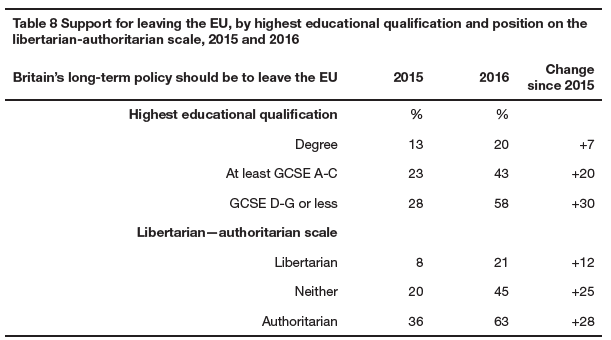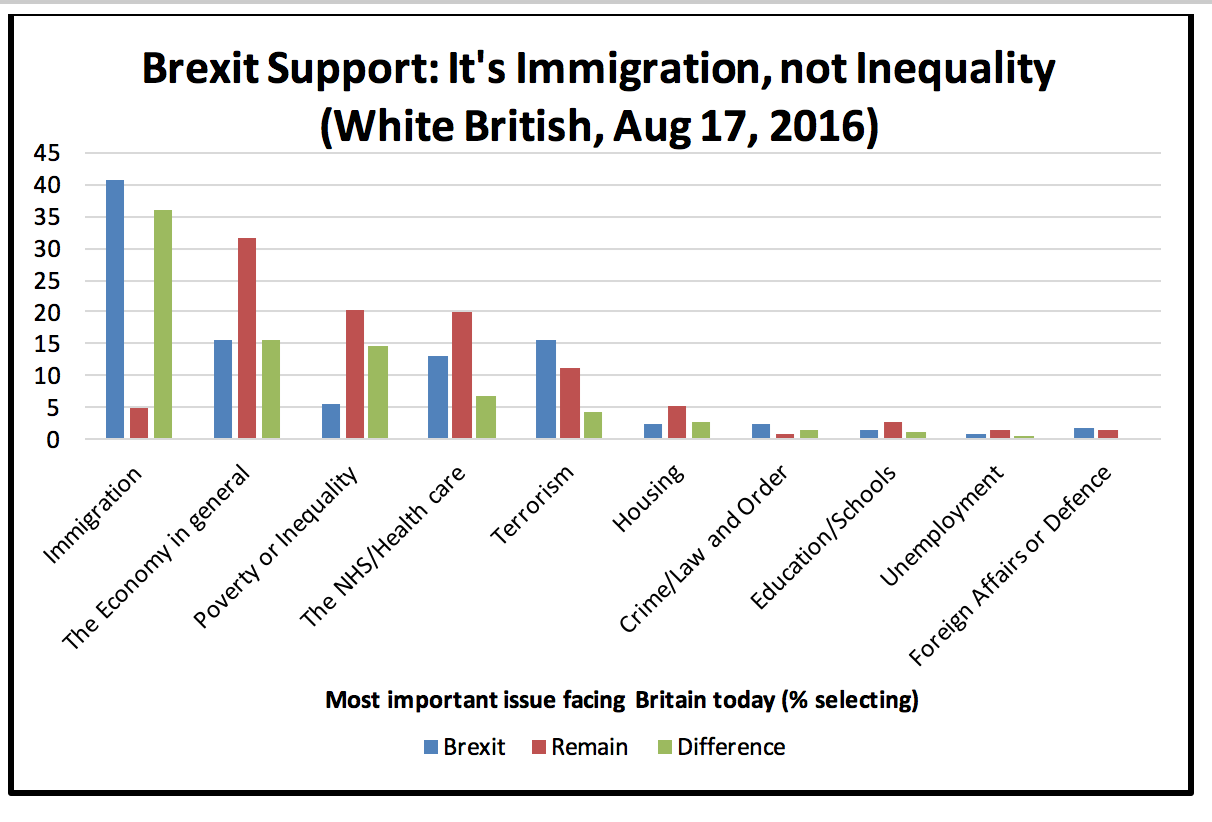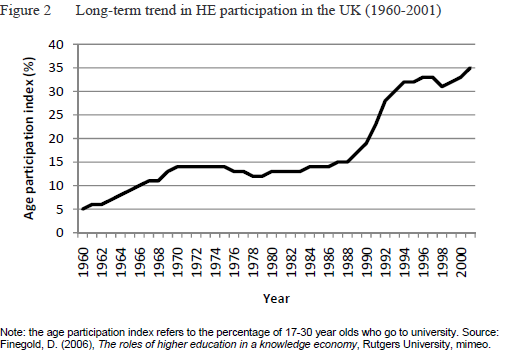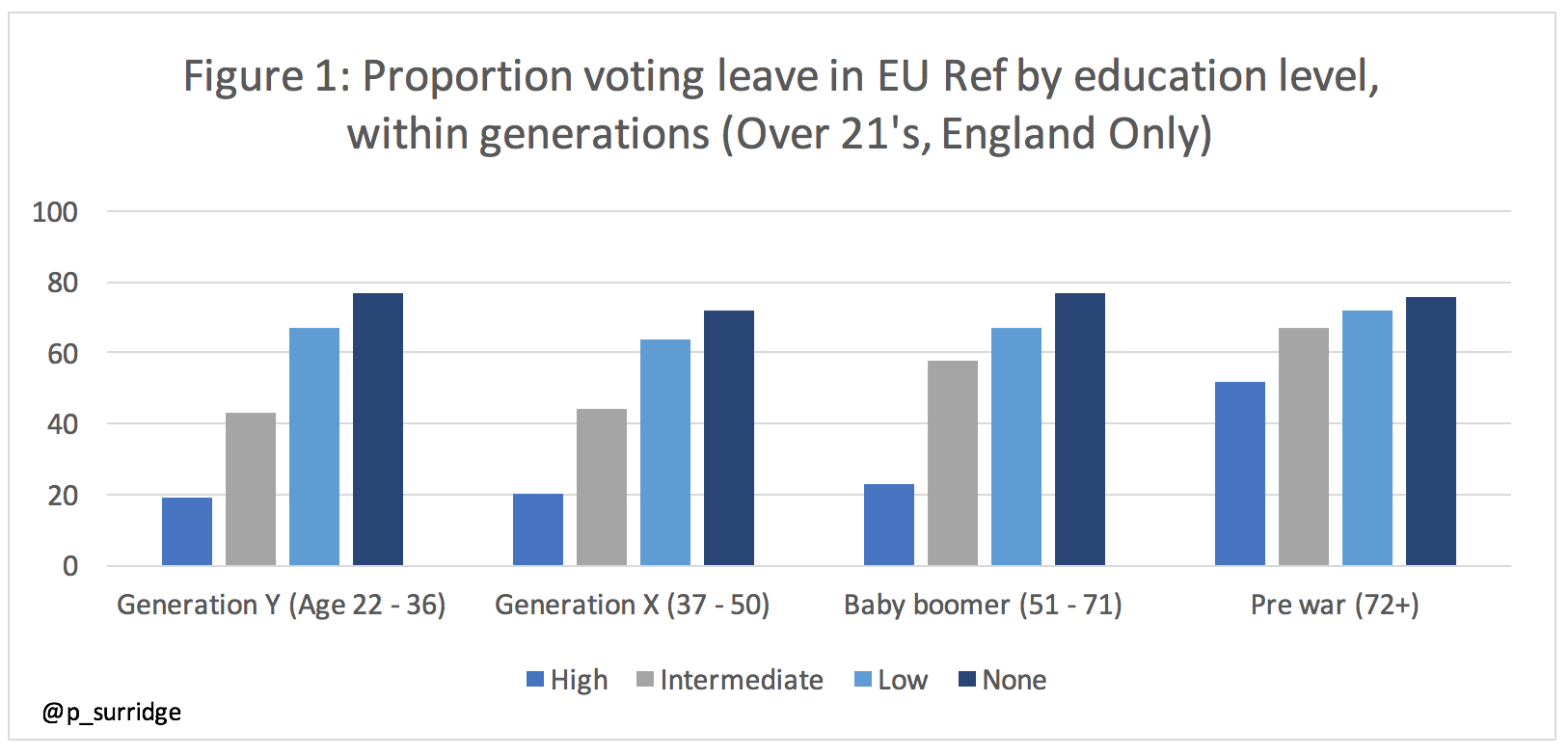Probably, at least in part, because people who voted leave are also more afraid of immigrants taking their low-skilled jobs.
A larger flow of migrants from Eastern Europe reaching a local authority area with a larger share of unqualified people or a larger share of manufacturing workers is associated with a larger Vote Leave share, whereas the opposite is true when a large flow of migrants from Eastern Europe reaches an area with a large share of those working in finance, or an area with higher median hourly pay.
[from https://academic.oup.com/economicpolicy/article/32/92/601/4459491]
Among the alternative interpretations given to this fact (by some comments on that paper) is that direct messaging and/or the tabloid press may be responsible for these differences, because the low-education segment prefers to read that kind of press and/or was more susceptible to direct misinformation via Leave campaign adds (including about the effects of immigration). But there's no data in the paper itself to directly support this alternative interpretation. (There might be some elsewhere; the panel discussion ended with some calls for more direct research on the differential effects of misinformation on the low-education vs high-education voters.)
I'll try to find something split by education (and more recent), but in the UK in general the opinion that immigrants "take" the natives' jobs was higher than in some other large EU countries, at least in 2011:
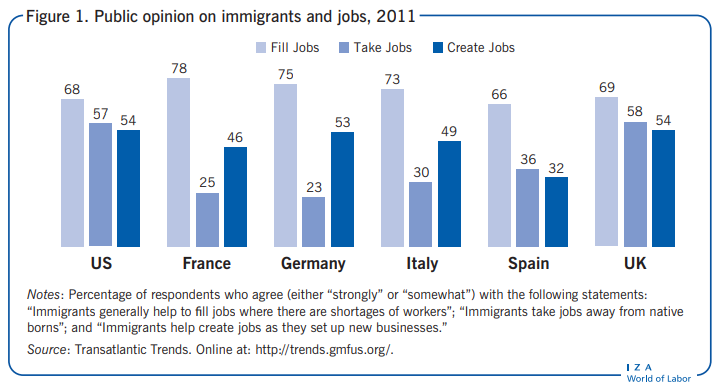
The press and politicians that ultimately backed Brexit were clearly spreading/supprting these ideas long before, e.g. 2011-era news:
Migrants 'take the jobs from young Britons'
Mass immigration poses the biggest threat to the Coalition’s attempts to get millions of people off benefits as foreign workers take low-paid jobs, Iain Duncan Smith [the Work and Pensions Secretary] will warn today.
(Some years later Iain Duncan Smith argued for Brexit.) Whether their message got across because the low-educated are more gullible or just because the message was correct and the low-educated really had something to fear is something surely interesting in itself, but I think there's little doubt that the message resonated with some low-education voters who were described as the main victim of immigration.
And interesting aspect is that the difference of opinions on immigration in the UK is larger by education (of the respondent) than it is by age (of the respondent) :
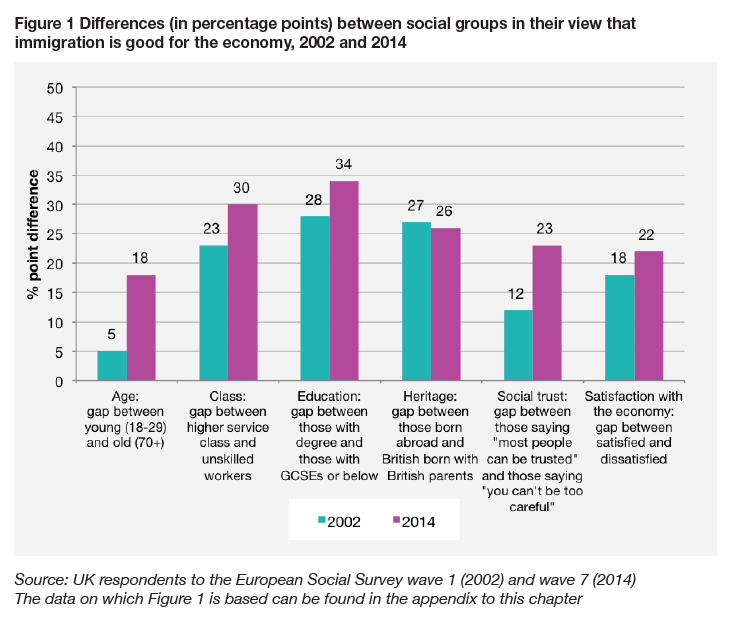
I think this mostly rules out that education is simply a proxy for age when it comes to views on immigration (despite the fact that younger cohorts are more educated.)
The same is true for the actual vote to leave, i.e. age does not "explain out" the effect of education:
To examine whether or not this is
the case in Table 4 we show the level of support for Remain broken
down by age and highest educational qualification combined. From
this it is clear that, of the two, it is educational background that is
by far the more important. Within each age group, there is a big
difference between graduates and those whose highest qualification
is a GCSE or less in the level of support registered for staying in the
EU. In the case of those aged between 35 and 54, for example, as
many as 81% of graduates voted to remain, compared with just 37%
of those whose highest qualification is a GCSE or less; a difference of
44 points. In contrast, older graduates were only 10 points less likely
than younger ones to vote for Remain, while the age gap among
those with a GCSE or less is only 7 points. Only among those whose
highest qualification is less than a degree but more than a GCSE is
there a substantial age difference. Even so, at 30 points, it is less
than the gap within all of our age groups between graduates and
those with a GCSE or less.
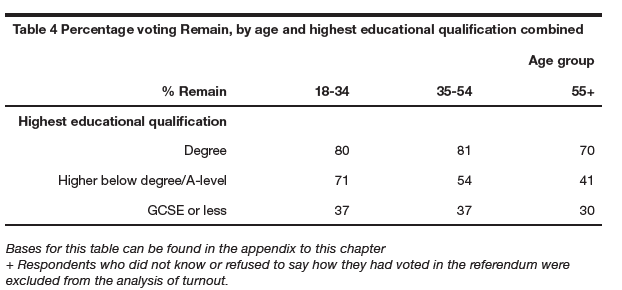
They come to same conclusion using regarding social class not being able to just explain away education here. (Quotes and figures on that omitted by me here; see table 3 in paper.)
The degree of shift in Leave opinion stratified by education is also interesting in the year before the referendum, with a large boost in the least educated segment. Also, people who held libertarian (including pro-immigration) views were least influenced by the Leave campaign.
